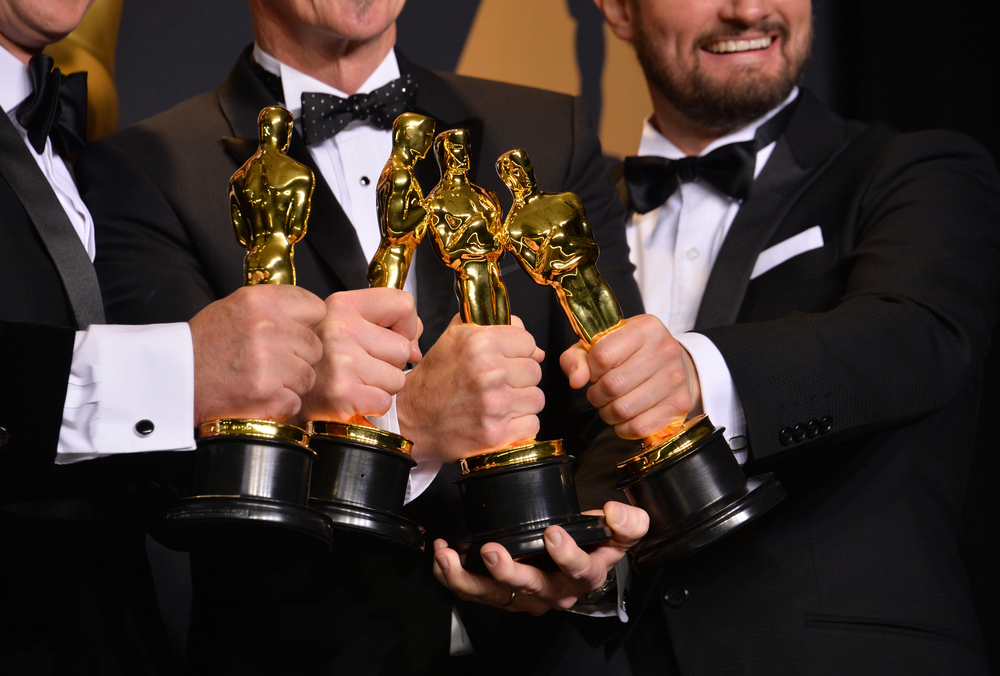With the Oscars just six weeks away, the rumoured decision to go on without a host seems like an overdue acknowledgment of some sad truths.
Nobody in Hollywood wants this miserable job.
Especially not this late, and not after it’s been publicly accepted, then taken away, and then possibly offered to the same person again.
That would be Kevin Hart. The only thing more distressing than watching how he fumbled being called out for his homophobic tweets was watching Ellen DeGeneres’s integrity plummet when she stumped for him against his online “haters.” (They’re called the LGBTQ community, Ellen, sheesh.)
It’s also confirmation that picking the right host has become an impossible task. There’s no magical celebrity who can get everyone excited about the Oscars anymore. No host, no matter how amiable, can unite audiences when audiences themselves are so fractured and individuated. That’s why awards shows can’t operate the way they once did. It’s a big reason so many of us are tuning them out.
So why did anyone watch them to begin with? I’ve put some thought into how the social purpose of televised awards shows is bumping up against present-day realities. Here’s what I’ve come up with.
People want to participate in cultural discourse, whether it’s water-cooler chitchat at the office or arguing with idiotic family members. Because film is one of the most democratic and accessible art forms, it lends itself easily to that. I believe that films reflect not just our dreams but also our real-world values. Awards shows thus represent our annual chance to get together and deliberate on those values: to champion some, to dismiss others. This need is served whether we end up agreeing with the winners or not. The debate is the point. That’s why hate-watching the Oscars can be as useful and pleasurable as watching them earnestly.
But increasingly this kind of cultural exchange is happening among smaller and more intersecting sub-groups. Paul Schrader, director of First Reformed, summed up what he calls “the de-fraction of culture” in a recent interview with Vulture magazine. “The fact [is] there’s no center. There’s no Johnny Carson, there’s no Walter Cronkite, there’s no Bruce Springsteen. There’s no fucking center to popular culture. The atrium where everyone would get together to talk is now dozens of little rooms.”
That means debates over the values behind awards show nominees can quickly stall out. One group of feminist friends might bemoan the Academy’s snub of female directors, but some within the group might still be happy to see an African-American nominee. Meanwhile, their aesthete pal might argue that the best director that year is a white guy, representation be damned. Oops, conversation over. (This kind of argument can even happen inside a single person’s head. It has in mine. I drink a lot to get through awards shows.)
The competing interests of fractured audiences have made the Best Picture race particularly fraught. Over the years, this category has become a referendum on what moviegoers value most: Love that endures discrimination? Women seizing power? Manly heroics? Judging by the relative momentum of this year’s awards contenders, I’d argue audiences are more interested in women leaving men behind to get ahead (A Star Is Born, The Favourite, Roma) than in men doing the opposite (First Man). They’re also more than ready, especially after #OscarsSoWhite, to champion films about better race relations (BlacKkKlansman, Black Panther, If Beale Street Could Talk, Green Book).
But is it ever fair to pick one progressive movement over another? It’s fine to hope a film about a marginalized segment of society, like gay African-Americans in Moonlight, gets the trophy instead of those over-exposed white starfuckers in La La Land, but it feels like the aristocrats win when they get to pit underdogs against each other. I felt really gross for thinking a film about women deserves to win over one about African-Americans this year, for instance.
And even among the movies about race relations, squabbles are taking place. Green Book critics decry its white saviour storyline while defenders of the film maintain it’s a lesson in acceptance, even though the family of the Jamaican-American pianist depicted in the film called it a “symphony of lies” and its screenwriter was slammed for an anti-Muslim tweet. Just keeping up with the ongoing debate over a single film can be exhausting.
Beyond evaluating the films, we also watch these shows to see how stars behave under the microscope of live television and extreme peer pressure. I believe what we’re really doing is making sure they appreciate their role as ambassadors of our values. They have not only to dress up for us, but also show some humility about the power we’ve granted them.
Previously, this social desire showed up in the expectation that stars work a little to earn their awards, maybe? They could do that either by enduring hardship while filming, affecting an accent or disability, or at least altering their appearance — preferably humbling themselves by looking less attractive, thankyouverymuch. It also showed up in intolerance for self-involved acceptance speeches and in delight when the host takes some stars down a notch or they reveal their human side by, say, looking miffed when they lose.
But what happens when social media pulls back the curtain too far? And politicians leave a moral vacuum that stars are rushing in to fill? There’s an expectation nowadays that stars will not only reveal intimacies on Instagram but also demonstrate a tactful understanding of the latest political controversy on the red carpet while never doing anything that ends up on TMZ. It’s made the job of values ambassador something only Dame Emma Thompson can hope to fulfill.
The rest of Hollywood has been revealed as “just like us” too often to be up on a pedestal anymore. When they preach from the Oscars podium on some social issue now, the reaction is more likely to be eye-rolling at their presumption than applause. Furthermore, the conflict between what the industry wants them to be and what an increasingly diverse audience wants gets acted out at awards shows, to stultifying results. Who wants to see actors play it safe so that their agents won’t get mad at them? (Or worse, who wants to see them go on about something they know nothing about just to look relevant?)
Awards shows can’t meet our needs the way they once did in this climate. And that’s before we get into how the political climate is contributing to awards show rot.
Another sad truth about awards shows is that it’s not much fun reflecting on our values when so many values floating around in society suck right now. An awful lot of people value bigotry over women gaining power or race relations getting better. Even more people value escaping into easily won battles between good and evil over dwelling on losing battles for equality.
Ironically, in their efforts and failures to please everyone, awards shows are actually reflecting many conflicting societal impulses quite well at the moment. If they die off in the process, would that really be so bad? Unlike the processions of largely white male icons in previous eras, there’s room for everyone in popular culture now. Or rooms, as the case may be. The atrium might just have to be rebuilt from scratch. ![]()
Read more: Film
















Tyee Commenting Guidelines
Comments that violate guidelines risk being deleted, and violations may result in a temporary or permanent user ban. Maintain the spirit of good conversation to stay in the discussion.
*Please note The Tyee is not a forum for spreading misinformation about COVID-19, denying its existence or minimizing its risk to public health.
Do:
Do not: